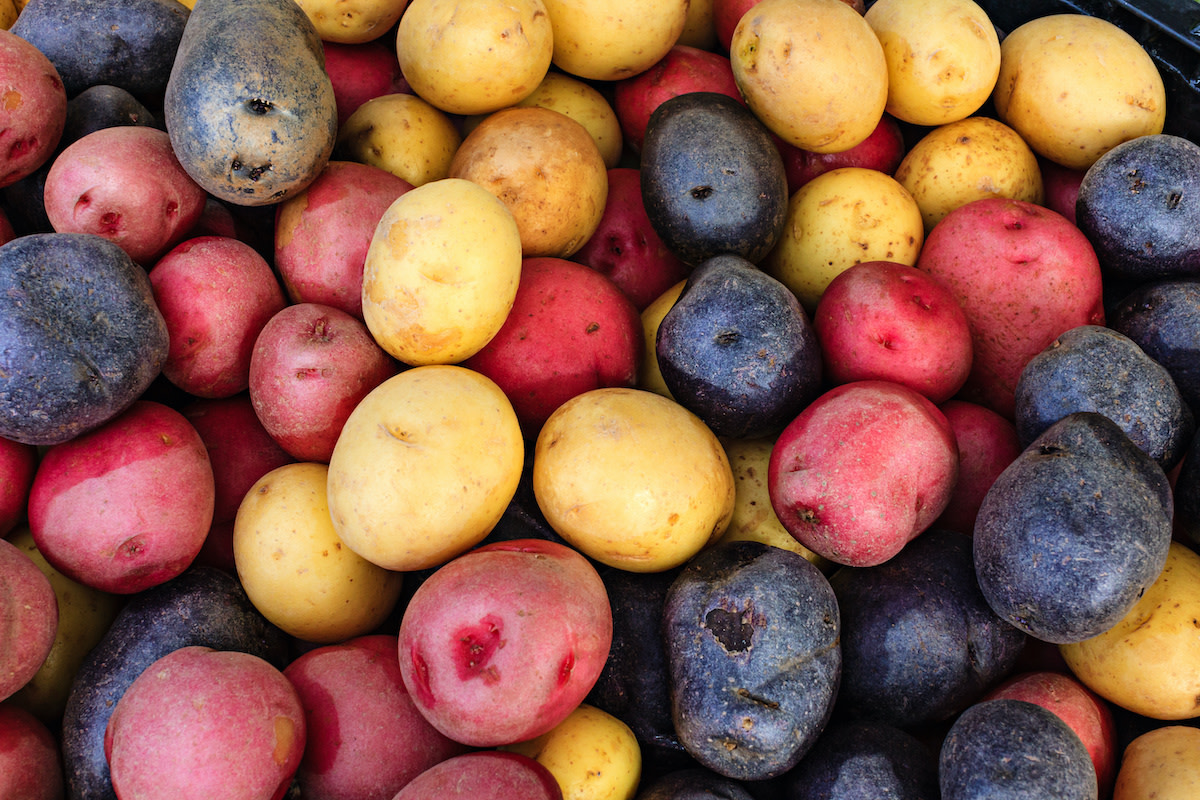How to Clean Potatoes in 5 Easy Steps
Written by MasterClass
Last updated: Dec 7, 2021 • 4 min read
Potatoes are delicious and packed with fiber, potassium, and antioxidants. As is the case with all veggies, you have to clean them before you eat them.
Learn From the Best
What Are Potatoes?
Potatoes are the tubers (large underground storage stems) of Solanum tuberosum, a nightshade plant native to the Andes Mountains, where potatoes have been cultivated for about 8,000 years. A member of the same family as tomatoes, eggplants, and peppers, potato plants also produce flowers, leaves, and poisonous berries.
Harvest mature potatoes (aka “spuds”) in the fall by killing the above-ground part of the plant and leaving the potatoes in the soil for a few weeks to thicken their skins. You can store potatoes at room temperature in your home for everyday use.
3 Tips for Buying Potatoes
You can cook potatoes in nearly countless ways. Before you get cooking, consider these three factors to ensure you buy spuds that are suitable for the potato recipe you have in mind:
- 1. Look for smooth, firm potatoes. No matter what type of potato you’re cooking, always look for ones that are firm and smell slightly earthy. Avoid soft potatoes, or ones with cuts or blemishes that can harbor bacteria. Potatoes with green skin might make you sick if eaten in large quantities, while wrinkled potatoes might be dry or bruised. Potatoes with sprouts are safe, as long as you plan to eat them within two days’ time.
- 2. Consider starch content. Potatoes with medium starch content turn crispy when you rub them with olive oil and roast them. Medium-starch potatoes include purple, blue, and red potatoes, as well as Kennebec and Elba potatoes. High-starch potatoes are perfect for baked potatoes, roasted potatoes, or French fries. Starchy potatoes include sweet potatoes, Idaho potatoes, and russet potatoes. All of these spuds make great mashed potatoes.
- 3. Save waxy potatoes for soups and stews. The low starch prevents these potatoes from falling apart after absorbing liquid. Use waxy potatoes with low starch content—such as Yukon gold or fingerlings—for soups, stews and casseroles.
Do You Need to Wash Potatoes Before Cooking?
The Food and Drug Administration advises you wash potatoes before you eat them. Potatoes grow in the ground, and carry not only dirt but also bacteria to the grocery store and later, your table. Pesticides also remain on potato skin; even organic potatoes carry some degree of contaminants.
Can You Clean Potatoes in a Dishwasher?
You can place unwashed potatoes in the top rack of your dishwasher and wash them in the rinse cycle. Make sure the dishwasher is empty and free of soap or detergent before using this method. Alternatively, you can soak your potato in a bowl of lukewarm water for approximately twenty minutes instead of rinsing them.
How to Clean Potatoes
You can clean all types of potatoes by following a few simple rules:
- 1. Wash your hands. Before you wash your potatoes, run your hands under warm water and lather them with soap for twenty seconds. Gather any items you’ll need (such as a scrub brush or towel) and make sure they’re also clean.
- 2. Rinse the potatoes. The best way to wash your potatoes is under running water. Either lukewarm or cool water will do. This will loosen any dirt particles on its jacket, or skin.
- 3. Start scrubbing. Using a circular motion, scrub potatoes with a vegetable scrubber or vegetable brush. You can also use a kitchen scrub brush, exfoliating gloves, or a kitchen towel, as long as they’re clean. If your scrubbing tool becomes dirty while you’re cleaning the potatoes, rinse it in cold water
- 4. Check for hidden dirt. Pay particular attention to the eyes of the potato, because dirt is often concentrated there. Remove any green sprouts you might find.
- 5. Rinse again and dry. Give the scrubbed potato another quick rinse under running water to wash away any surface debris, and then pat dry the clean potatoes with a paper towel.
How Long Do Potatoes Last?
Uncooked potatoes last for up to two months under the right conditions. You can also freeze potatoes to preserve them for up to three months. However, cooked potatoes, boiled potatoes, and peeled potatoes last only one to two hours if left on a countertop. When exposed to fresh air, oxidation takes place, and the flesh of the potato starts turning brown.
How to Store Potatoes
You’ll need to store cooked potatoes using different methods than you use to store uncooked potatoes.
- Cooked: If you’ve cooked your spuds but want to eat them later, store them in a bowl of cold water with a splash of lemon juice or vinegar. Cover the bowl with an airtight lid and place it in your refrigerator. The potatoes should last for twenty-four hours before they begin oxidizing
- Uncooked: Place raw potatoes in a cool, dark place with plenty of ventilation, and store them in a bowl or paper bag (plastic bags trap moisture and cause the spuds to spoil). Avoid storing potatoes in your fridge; the cold temperature turns the potato’s starch into sugar which, when cooked, produces a potentially harmful chemical called acrylamide.
Want to Learn More About Cooking?
Become a better chef with the MasterClass Annual Membership. Gain access to exclusive video lessons taught by the world’s best, including Alice Waters, Gabriela Cámara, Niki Nakayama, Chef Thomas Keller, Gordon Ramsay, Yotam Ottolenghi, Dominique Ansel, and more.
